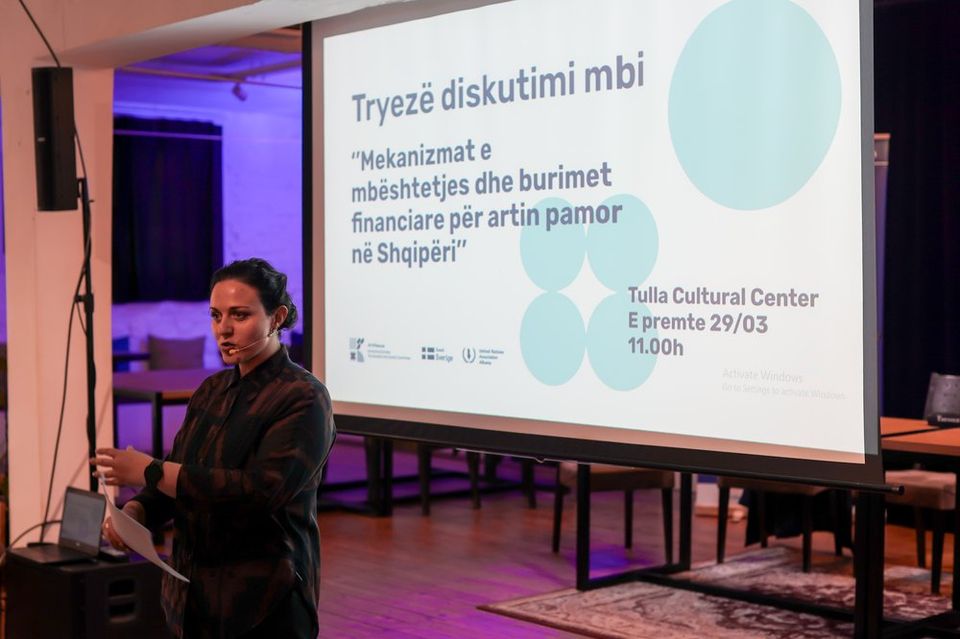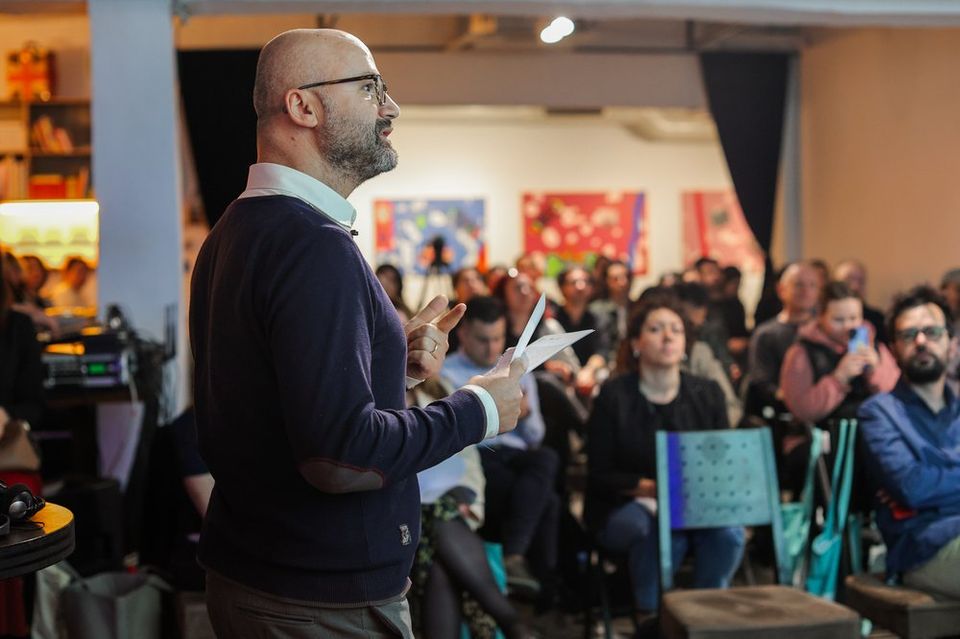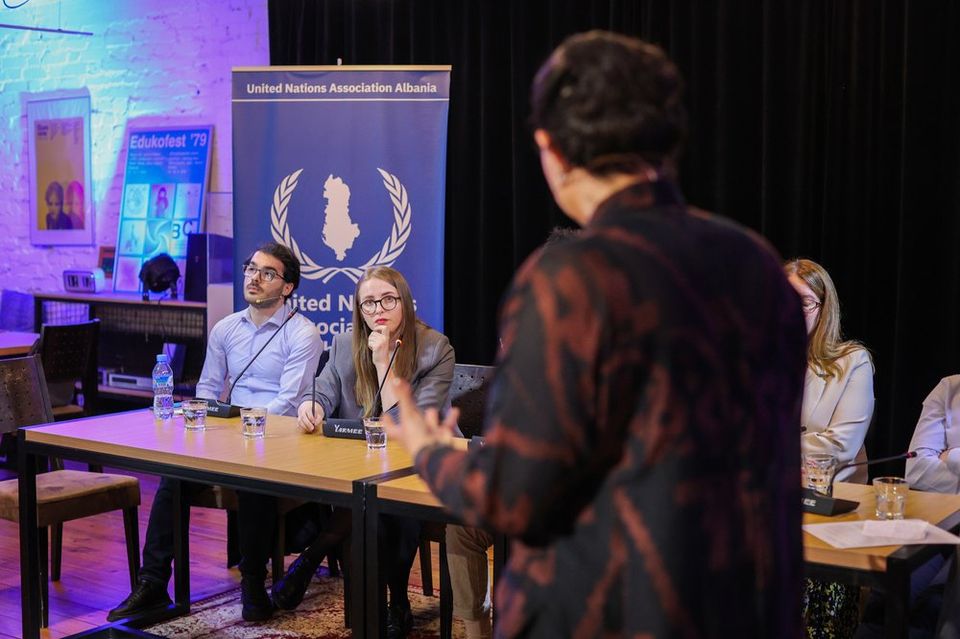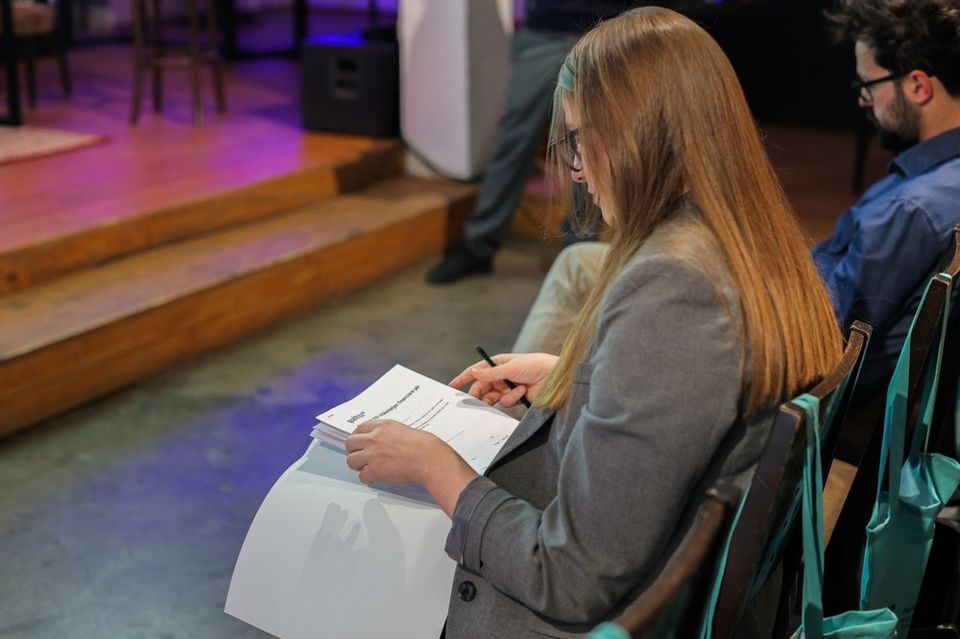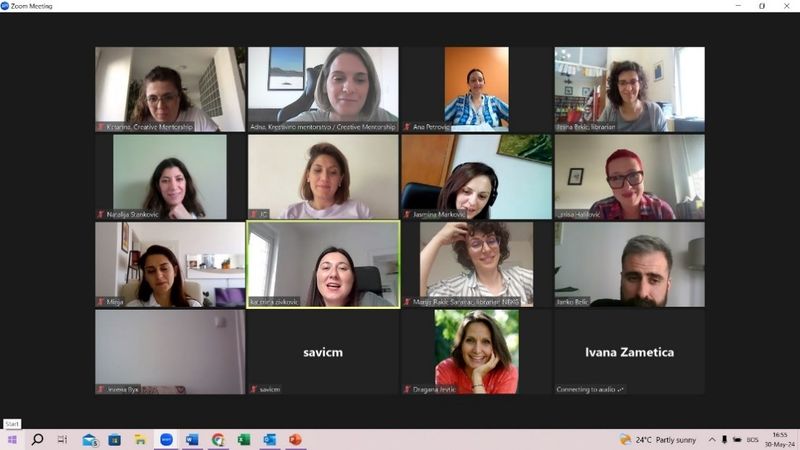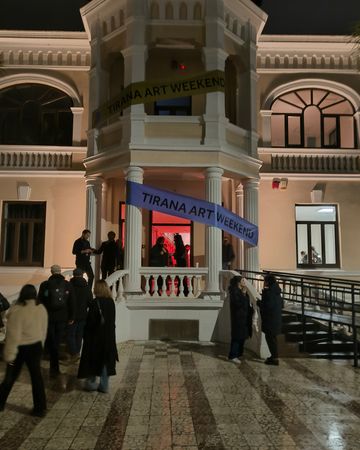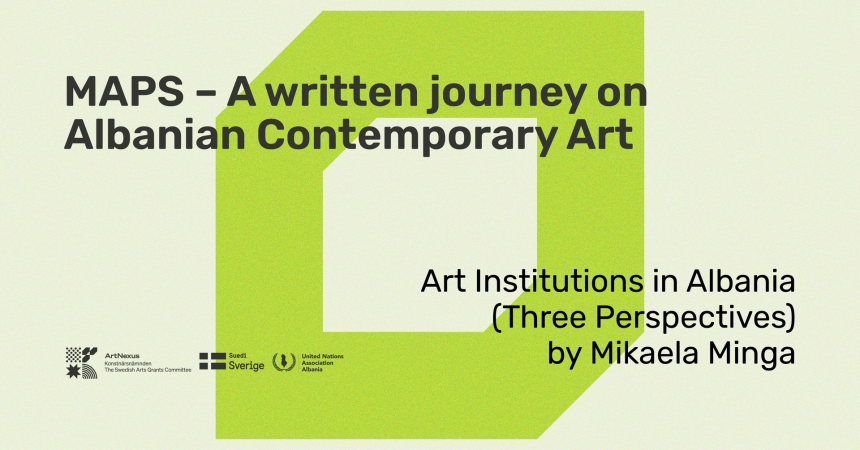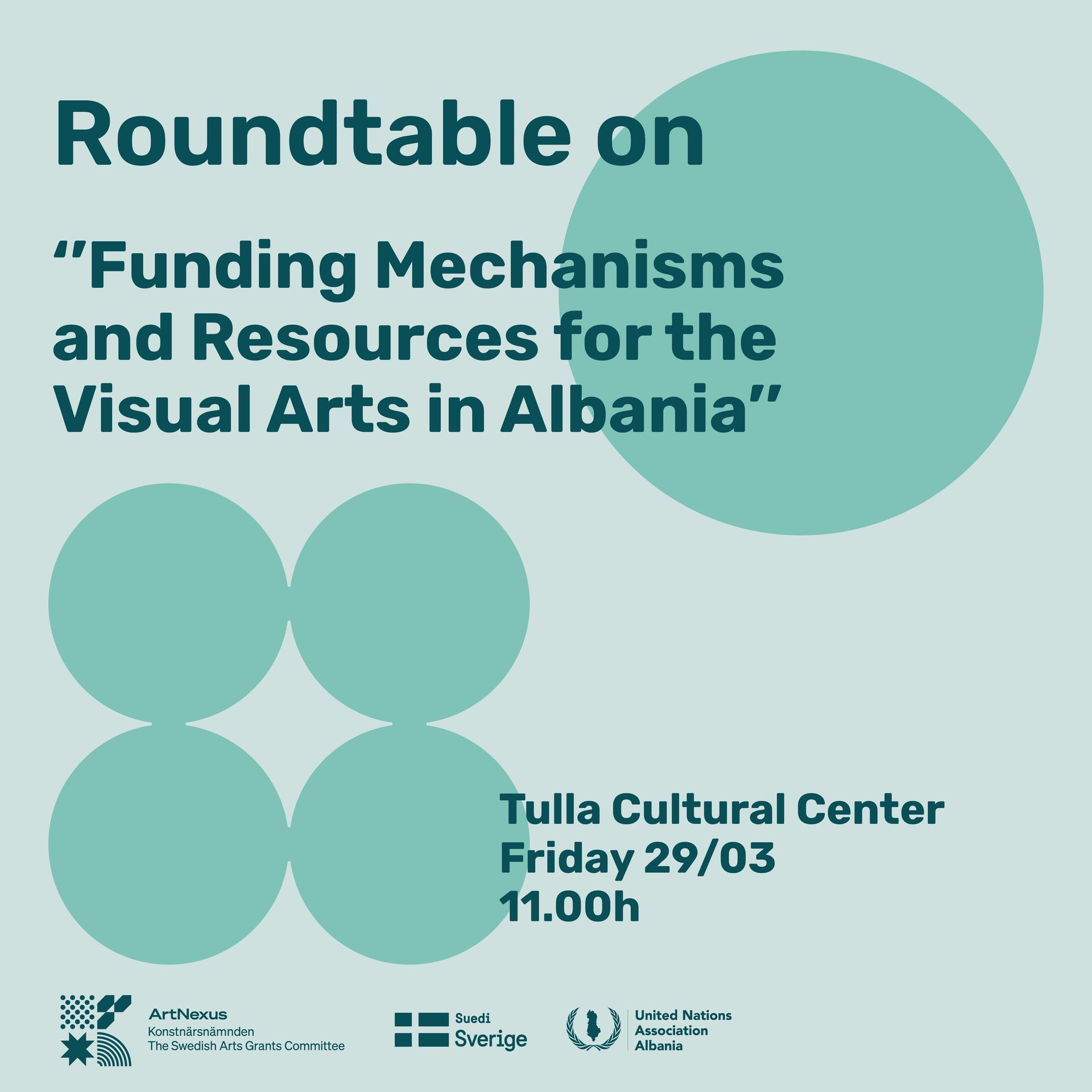
Roundtable on Funding Mechanisms and Finacial Support for the Visual Arts in Albania
2024-03-29
We had the pleasure of holding the roundtable on the research (policy paper) “Funding Mechanisms and Resources for the Visual Arts in Albania” on March 29, 2024. During this meeting held at the Tulla Culture Center, and under the moderation of Donika Çina, the researchers Pavjo Gjini and Çelik Rruplli, presented their findings, expanding on the Albanian context of visual arts developments. Participants were cultural agents in Albania, artists, art researchers, journalists and curators. After the opening presentation of the authors Pavjo Gjini and Çelik Rruplli, the panel discussion took place with the Deputy Minister of MEKI, Mrs. Lira Pipa; The director of the Marubi Museum, Mr. Lucian Bedeni; the director of the British Council in the Western Balkans, Mrs. Majlinda Mazelliu and representative from the Swiss Cultural Fund Mr. Kleidi Eski.
The authors of the research, Pavjo Gjini and Çelik Rruplli, briefly presented their findings, expanding on the Albanian context of visual arts developments, as well as presented their recommendations for the improvement of cultural policies in the country. Among the main recommendations of the research we highlight: Continuous dialogue between artists and central or local institutions; Proactive transparency from institutions; Creation of a national registry and local registries for artists (legal persons and organizations); Creation of a fund dedicated to visual arts projects; Adoption of a law on the status of the artist in cooperation and dialogue with the artistic community; Creation of the Center for Arts and Culture Research.
In their speech, the panelists emphasized the importance of such research as essential in the conception of strategies that assist the development of visual arts in Albania, simultaneously affirming the problems already presented in the research, among which the most urgent is the lack of funds. Deputy The Minister emphasized the decision-making aspect of the Ministry, presenting some of the priorities of this institution for the future, among which: the revision of financing schemes to increase transparency and stability; involving artists in decision-making processes and increasing the budget for art and culture. The director of the Marubi Museum, Mr. Luçian Bedeni, shared the good work that his institution does in the evaluation with royalties for the artists and curators who are engaged with this institution. While Mrs. Mazelliu and Mr. Eski, as representatives of international donors for the art and culture sector in Albania, shared their experience in working alongside public institutions, but also the challenges that often arise from these collaborations.
After the speech of each of the panelists, there was a question and discussion session, during which the participants could ask their questions. During this session, the lack of funds, the lack of transparency and the problems encountered by independent artists in maneuvering, especially economic in the cultural sector, were highlighted again by the artists and journalists themselves. Among other things, the question of the visibility of research recommendations and the next steps that the Ministry of Economy, Culture and Innovation will take to comply with them was renewed. The need to create operational support schemes for art and culture organizations was emphasized, for which the deputy minister mrs. Pipa said that the idea of creating 3-year support schemes for organizations stabilized in the cultural ecosystem is being considered. From the independent artists, the lack of royalty payments for artists who participate in exhibitions was highlighted as a problem, as well as the need to create public collections that support artists, but also create the memory of contemporary art. Often in discussions, it was taken as a reference of good policies in the Kosovo region, both for the drafting of the law on the status of the artist, and for the model of support schemes for the visual arts; as well as the arm's length principle (Arms Length Principle) as a model borrowed from Great Britain and the Scandinavian countries to protect artists' freedom of expression from central or local politics through the creation of collegiums (responsible for evaluating projects) composed of experts in the field and not public employees.
In conclusion, the panelists and participants together gave their ideas on the most effective economic strategies in the development of culture and its sectors. As well as deputy The Minister pledged to further review the recommendations and the possibility of their implementation in the policies of the new Ministry.
Photographer: Joana Selishta
